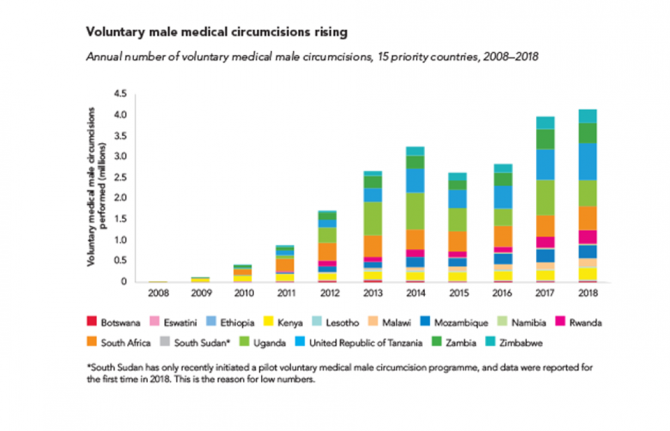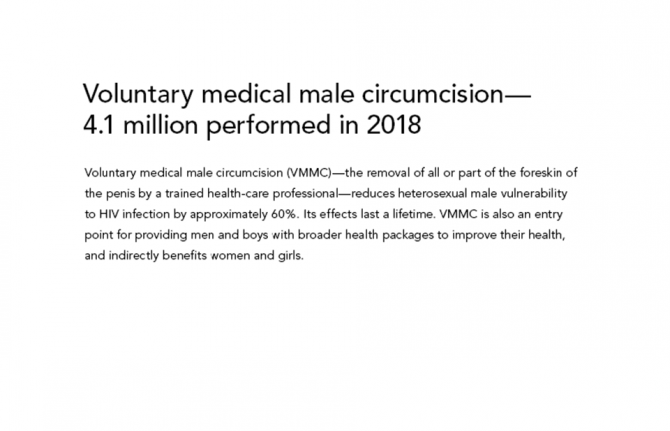


Update
Voluntary medical male circumcision―4.1 million performed in 2018
21 October 2019
21 October 2019 21 October 2019Voluntary medical male circumcision (VMMC)―the removal of all or part of the foreskin of the penis by a trained health-care professional―reduces heterosexual male vulnerability to HIV infection by approximately 60%. Its effects last a lifetime. VMMC is also an entry point for providing men and boys with broader health packages to improve their health, and indirectly benefits women and girls.
VMMC can have a major impact on HIV epidemics in high-prevalence settings. VMMC services incorporate a package of prevention interventions, including safer sex education, education on and provision of condoms, HIV testing and the management of sexually transmitted infections.
About 11 million VMMCs have been performed in 15 priority countries in eastern and southern Africa since the beginning of 2016. In 2018 alone, about 4.1 million voluntary circumcisions were performed among males of all ages, a slight increase from the 4 million carried out in 2017.
There has been progress towards the target of 25 million additional circumcisions for HIV prevention from 2016 to 2020. However, at the end of 2018, when 15 million circumcisions should have been performed, the world was off-target by 4 million circumcisions.
Related
 Government ensures continuity of treatment in Malawi
Government ensures continuity of treatment in Malawi

10 February 2025


